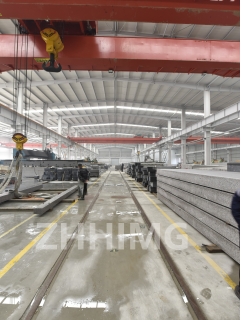Three-coordinate measuring machines (CMMs) are incredibly precise and accurate instruments that can measure the geometric dimensions of an object with high precision. They are used extensively in the manufacturing and engineering industries to ensure that the products produced meet exacting standards. To achieve this, it is essential to have a solid and stable base on which the CMM can be mounted. Granite is the most common material used, due to its high strength, stability, and resistance to temperature changes.
Choosing the appropriate size and weight of the granite base is a critical factor to consider when selecting a CMM. The base must be able to support the CMM without flexing or vibrating during measurement to ensure consistent and accurate results. To make the perfect choice, a few essential factors need to be taken into account, such as the required accuracy, the size of the measuring machine, and the weight of the objects to be measured.
Firstly, the required accuracy of the measurement needs to be considered while choosing the appropriate size and weight of the granite base for the CMM. If a high accuracy is required, then a more massive and more substantial granite base is preferable, as it will provide greater stability and less vibrational disturbance while measuring. So, the ideal size of the granite base largely depends on the accuracy level needed for the measurement.
Secondly, the size of the CMM itself also influences the appropriate size and weight of the granite base. The larger the CMM is, the larger the granite base should be, to ensure that it provides adequate support and stability. For example, if the CMM machine is only 1 meter by 1 meter, then a smaller granite base weighing around 800 kilograms may suffice. However, for a larger machine, such as one measuring 3 meters by 3 meters, a correspondingly larger and more massive granite base will be required to ensure the machine's stability.
Lastly, the weight of the objects to be measured will need to be taken into account when selecting the appropriate size and weight of the granite base for the CMM. If the objects are particularly heavy, then choosing a more substantial, and thus more stable, granite base will ensure accurate measurements. For instance, if the objects are larger than 1,000 kilograms, then a granite base weighing 1,500 kilograms or more may be appropriate to ensure the stability and accuracy of the measurement.
In conclusion, choosing the appropriate size and weight of the granite base is vital to ensure the accuracy and precision of the measurements taken on a CMM. It is essential to consider the required accuracy level, the size of the CMM machine, and the weight of the objects to be measured to determine the ideal size and weight of the granite base. With careful consideration of these factors, the perfect granite base can be selected, which will provide adequate support, stability, and ensure accurate measurements every time.
Post time: Mar-22-2024

